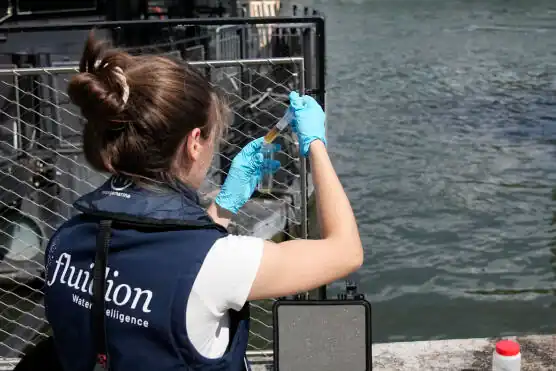Paris, June 21, 2024 – With just over a month until the 2024 Summer Olympics, Paris faces a major setback as water quality tests reveal that the Seine River, slated to host the triathlon and open-water swimming events, fails to meet necessary safety standards.
The analysis, conducted on June 16, reported alarming levels of fecal bacteria, including E. coli, casting doubt on the feasibility of holding these events in the iconic waterway.
Marc Guillaume, the prefect of the Paris region, confirmed the disheartening results. “Samples from the Seine do not meet the standards we will have this summer,” he stated, highlighting the ongoing concerns regarding water quality as the Games approach, scheduled from July 26 to August 11.
The Paris region and the mayor’s office, in their weekly report, attributed the degradation in water quality to unseasonal weather patterns.
“Water quality remains degraded due to rain, high flow, little sunshine, and temperatures below seasonal norms,” the report detailed.
This combination of factors has led to elevated levels of E. coli, particularly in four key locations along the river, consistently breaching recommended limits throughout the week of June 10 to 16.
This issue is not new for the Seine. Last August, swimming marathon test events were canceled due to similar contamination concerns.
Additionally, the swimming segments of the triathlon and para-triathlon test events were disrupted on two out of the four scheduled days, highlighting the persistent challenge of ensuring safe water conditions in the river.
The Seine holds significant symbolic and logistical importance for the 2024 Olympics. Beyond the open-water swimming and triathlon events, it is also set to host the grand opening ceremony.
The city of Paris has invested considerable effort and resources into cleaning up the Seine, a central feature of their Olympic bid and broader environmental initiatives.
However, this recent setback underscores the difficulties in achieving consistently safe water quality standards.
In response to these findings, officials have outlined contingency plans. Should the Seine remain polluted at the start of the Games, the immediate solution would be to postpone the open-water swimming events by a few days rather than relocating them.
This approach aims to allow for potential improvements in water quality, although it introduces scheduling uncertainties.
The broader implications of this issue extend beyond the Olympics. The health of the Seine River is a critical component of Paris’s environmental and public health strategy.
Persistent contamination highlights ongoing challenges in managing urban water quality in the face of variable weather patterns and urban runoff.
As the countdown to the Olympics continues, the city of Paris remains on high alert. Efforts to address water quality issues are intensifying, with hopes pinned on favorable weather conditions to improve the Seine’s state.
The world will be watching closely, not only for the athletic feats but also for the city’s ability to overcome environmental hurdles and deliver a safe and successful Olympic Games.
The situation serves as a stark reminder of the complex interplay between environmental conditions and major international events.
As Paris grapples with these challenges, the resolve to achieve a cleaner Seine endures, driven by both immediate Olympic needs and long-term urban sustainability goals.
This article was created using automation technology and was thoroughly edited and fact-checked by one of our editorial staff members



